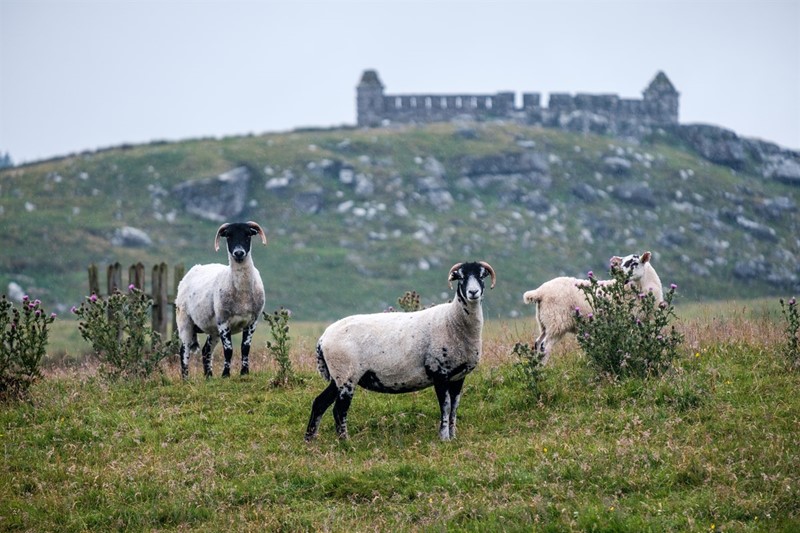Despite the public goods upland farms deliver – including managing some of the UK’s most cherished National Parks and producing climate-friendly food – the NFU modelling1, which used real data from upland farms, showed that on average the businesses lost 37% of their support payments under the current SFI (Sustainable Farming Incentive) and CS (Countryside Stewardship) options.
NFU uplands forum chair Thomas Binns said: “Like all upland farmers, I love the hills I work in and I want to ensure that I can continue to produce food for the nation while leaving the countryside in a better state for the next generation. But as the modelling shows, the current ELMs offers falls short of providing a viable future for upland businesses.
“It is incredibly disappointing that we find ourselves, after years of consultation with Defra, still with such a significant gap in the income of upland farmers. This is after we were told repeatedly that we would be recognised for the work we do, and that our businesses – so vital to the makeup of the countryside – wouldn’t be worse off in the transition from Basic Payment Scheme.
“We have been encouraging Defra for some time to undertake its own modelling work to understand the impact of direct payment loss on upland incomes, but this has never materialised. Our modelling now shows the precarious position of these most treasured landscapes. What we need to see are options that reward the public goods we deliver and I look forward to continuing to discuss this modelling with Defra.”
NFU Vice President David Exwood said: “Sadly these stark figures are not a surprise to the farmers working in our hills. We have been urging Defra to bring forward refreshed SFI options that deliver meaningful income in return for the vital management hill farms deliver and the environmental goods they supply. We want to see upland farm businesses thriving, but that is almost impossible if they are not being supported fairly for the work they do.
“We must remember that upland farms create and manage the landscapes found in much of the country’s most treasured areas, such as National Parks and Areas of Outstanding Natural Beauty, which deliver £1.7 billion2 to local economies through tourism. They are also part of the fabric of rural communities, saving homes from flooding, looking after miles of stone walls and hedges and producing nutritious and sustainable beef and lamb.
“The modelling outlines the vital need for Defra to urgently deliver support options that work for the wide range of upland farms across the country, reflecting the value they bring to our countryside.”
More information
- The modelling worked with six case study uplands farms, typical of the range of businesses seen across upland farm businesses in the country to calculate the maximum theoretical SFI and CS earnings available for each farm.
- Four out of the six farms claimed BPS and were in agri-environment schemes.
- One case study farm claimed BPS but was not in an agri-environment scheme.
- The final farm did not claim BPS but was in an agri-environment scheme.
- Find out more about the public goods upland farmers deliver here.
- For more information about the NFU modelling work please get in touch with the NFU press team.
